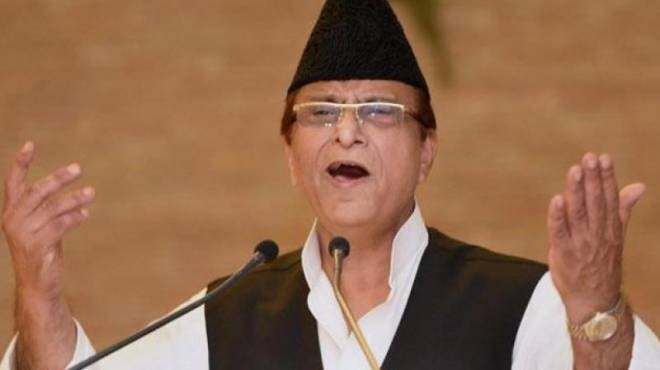New Delhi: The apology tendered by controversial Uttar Pradesh Minister Azam Khan for his alleged remarks on the sensational Bulandshahr gang rape case does not appear to be “unconditional”, the Supreme Court observed today.
A bench of Justices Dipak Misra and Amitava Roy made the observation after Attorney General Mukul Rohatgi objected to certain words like “if” and “then” used by Khan in his affidavit tendering unconditional apology as per the November 17 directions of the apex court.
The use of words like “if” and “then” in the affidavit, which was to be an unconditional apology, has defeated the purpose, Rohatgi said.
“In the affidavit, he (Khan) is saying that unfortunately statements made (by him) were misreported. If it is a question of misreporting then why there is an apology? This is not an unconditional apology. He is using the words ‘if’ and ‘then’. He can’t ride two horses at a time,” Rohatgi told the bench.
However, the bench asked Khan’s counsel to provide a copy of the affidavit to senior advocate Fali S Nariman, who is assisting the court as amicus curiae. “Show it to Mr Nariman. It does not appear to be an unconditional apology,” it said.
Nariman also said it was not an unconditional apology.
However, Khan’s counsel sought a passover in the matter.
After the hearing resumed, senior lawyer Kapil Sibal, who was representing Khan, said the affidavit should be “ignored” and the Samajwadi Party leader would file a fresh one.
Rohatgi continued to insist that this cannot be treated as an unconditional apology.
However, the bench agreed to Sibal’s contention and directed Khan to file a fresh affidavit.
“The affidavit filed today by R-2 (Khan) is ignored and he shall file a fresh affidavit in terms of the direction given earlier by this court,” the bench said and posted the matter for hearing on December 15.
At the fag end of the hearing, Sibal said, “It’s difficult for me to say whether he (Khan) will say the word apology. He intends to say remorse instead of apology”.
To this, the bench said it would examine whether remorse is sufficient for tendering an unconditional apology on the next date of hearing.
The brutal incident had happened on the night of July 29 when a group of highway robbers stopped the car of a Noida- based family and sexually assaulted a woman and her daughter after dragging them out of the vehicle at gun-point.
The apex court had on August 29 taken note of the alleged controversial remarks of Khan that the gang rape case was a “political conspiracy”.
On November 17, the apex court had directed Khan to
tender “unconditional apology” for his alleged remarks in the matter while seeking assistance of the Attorney General in dealing with the issue of statements made by persons holding public office in such cases.
Sibal had earlier said that though Khan had not said anything attributed to him against the victims in the case, but if the father of the victim felt “insulted or offended” in any manner then Khan was willing to apologise.
The court has said it would deliberate upon the questions framed by it earlier regarding the freedom of speech and expression and probable impact of statements of those holding high offices on free and fair probe in heinous cases including rape and molestation.
Initially, the FIR was lodged by the Uttar Pradesh Police under various provisions on July 30. The CBI had re-registered the case on August 18 in pursuance to the Allahabad High Court’s interim order.
The man, whose wife and daughter were gangraped in July on a highway in Bulandshahr, had on August 13 moved the apex court seeking transfer of the case to Delhi, besides lodging of an FIR against Khan as well as several policemen.
The Allahabad High Court had ordered a CBI probe into the incident, besides deciding to monitor the investigation.
PTI

